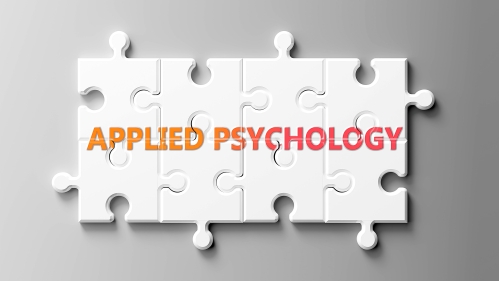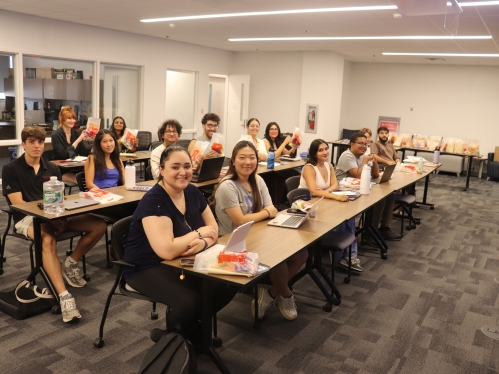
Master of Applied Psychology (MAP)
Master of Applied Psychology (MAP) Program Description
The 42-credit Master of Applied Psychology (MAP) program provides a rigorous foundation in the scientific and clinical principles of psychology, integrating evidence-based theory with applied training. The curriculum emphasizes psychological science, assessment, and intervention strategies and advances the values of civic and global responsibility, social justice, and cultural competence. Students are prepared to approach complex human challenges with professionalism, critical insight, and clinical sensitivity.
Through this comprehensive course of study, students will:
- Build foundational knowledge of psychological science to understand individual and group behavior across the lifespan.
- Develop quantitative and qualitative research competencies, including statistical analysis and research design, to evaluate behavioral, biological, and environmental determinants of health.
- Recognize the role of counseling within applied psychology, gaining skills to foster growth, resilience, and well-being in diverse client populations.
- Acquire a clinically relevant understanding of behavioral assessment, diagnosis, and evidence-based treatment approaches for behavioral challenges and psychological disorders.

Opportunities for Clinical and Professional Growth
The MAP program emphasizes the integration of theory, research, and practice, preparing graduates for both clinical-facing and research-oriented roles. Students will:
- Participate in practicum opportunities that connect classroom learning with applied clinical and organizational settings.
- Engage in integrated learning experiences combining didactic coursework with supervised practice in assessment, intervention, and consultation.
- Understand the role of counseling in applied psychology, developing skills to provide effective support, guidance, and evidence-based interventions across diverse settings.
- Develop clinical decision-making, case formulation, and problem-solving skills essential for effective applied practice.
Specialized Training Tracks
The MAP program currently offers two pathways: General Psychology and Addictions Counseling (ACT). Additionally, students can explore electives in sports performance psychology and applied behavior analysis.
Career Pathways – Graduates of the MAP program are well-prepared for two primary career directions:
- Advanced Academic Pursuits: Readiness for advancement into doctoral-level programs in clinical, counseling, or applied psychology fields, supported by rigorous training in scientific and clinical foundations.
- Professional Roles: Entry-level positions in applied and clinical-support fields, including behavioral health agencies, addiction services, community mental health, healthcare organizations, human services, research institutions, and governmental programs. Graduates bring strengths in psychological knowledge, research design, and applied intervention strategies.
Note: The MAP program is an applied psychology program. Completion of the degree and extra coursework does not guarantee licensure as a professional counselor.
*See where our MAP grads who have moved onto doctoral programs have continued their studies!*

Program Objectives
The MAP program is committed to:
- Fostering Clinical and Professional Competence: Training students to think critically and apply psychological science in clinical and applied contexts.
- Advancing Scientific and Applied Knowledge: Equipping students with a strong foundation in psychological and counseling principles and clinically informed practice across diverse populations and settings.
- Developing Cultural and Ethical Awareness: Preparing students to apply psychology ethically and responsively within culturally diverse and socially complex communities.

Courses
Apply
Application Deadline for Fall Semester 2026 Admission: April 30th
(For additional information, please visit our FAQs.)
Start Your Journey Today
Take a Course Before You Apply
Interested in the MAP program but not ready to commit? Rutgers GSAPP offers prospective students the chance to try a course as a non-matriculated student. Earn credits that can later be applied toward a graduate degree and experience what our programs have to offer—before you apply.
Available Courses:
- Social Development Psychology 18:820:506 (Fall & Spring)
- Foundation in Psychotherapy 18:844:527 (Fall & Spring)


